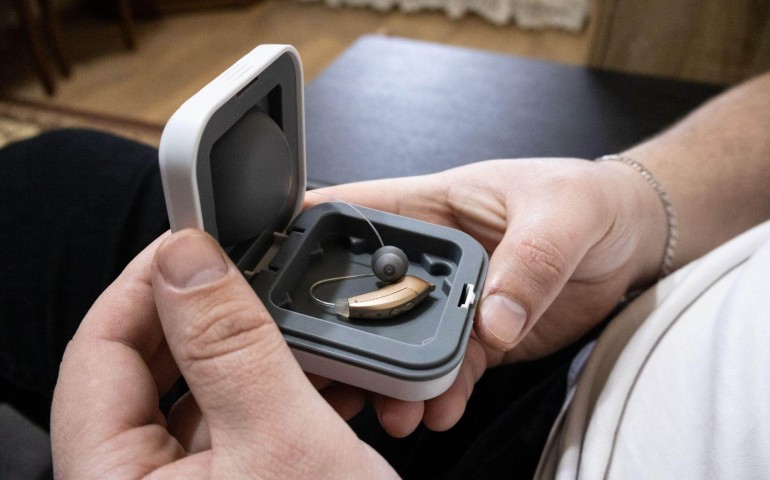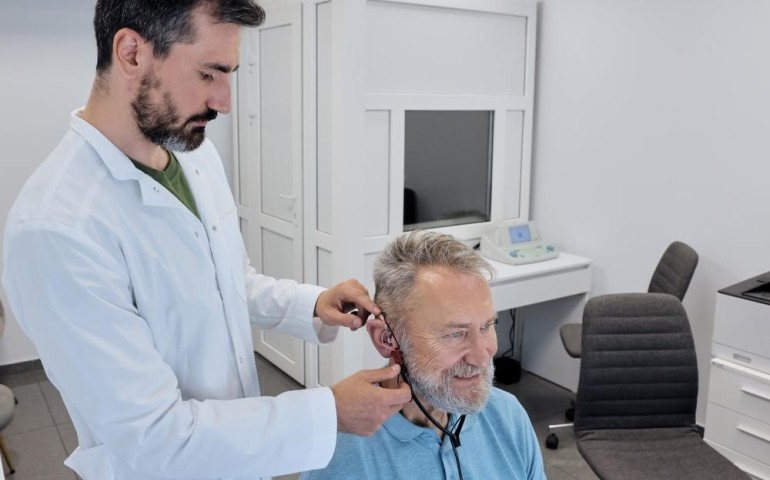Staying active is good for your overall health, specifically your heart. However, your cardiovascular health also impacts your hearing. Understanding the link between exercise and hearing loss can help you maintain your hearing as you age.
Different types of exercise can help prevent hearing loss. Taking care of your physical health keeps your ears working well. This also helps you live a healthier life.
The Impact of Physical Exercise on Hearing Health
Improved Blood Circulation
Regular exercise boosts blood circulation throughout the body, including your ears. The cochlea is the part of your inner ear that processes sound. It needs oxygen-rich blood to work well. Better circulation helps protect your hearing system and supports your hearing long-term.
Reduced Risk of Chronic Conditions
Chronic illnesses like high blood pressure, diabetes, and heart disease are all known to increase the risk of hearing loss . There's a strong connection between cardiovascular health and hearing loss. Regular physical activity can help reduce or manage these conditions.
Delivers Oxygen to the Ear
Exercise can help prevent hearing loss by improving the flow of oxygen and nutrients to the inner ear. A healthy heart and blood system keep important pathways open and working, which may lower the risk of hearing loss as we age.
Lowers Inflammation and Stress
Regular physical activity helps control inflammation throughout the body, including in the ears. Additionally, exercise is a natural stress reliever, reducing cortisol levels and lowering the likelihood of stress-induced hearing problems, including tinnitus.
Supports Weight Management
Obesity has been linked to a higher risk of hearing loss, often due to related conditions like diabetes or poor vascular health. Exercise supports a healthy weight, which in turn promotes healthy hearing.
Best Exercises to Support Hearing Health
Cardiovascular Exercise
There is a strong link between heart health and hearing loss. Exercises that raise your heart rate can help improve blood flow. Walking, cycling, swimming, and jogging all promote heart health and improve circulation.
Strength Training
Adding resistance workouts two to three times a week can help control blood sugar. It can also support weight management and improve blood flow, all of which can help with hearing health.
Balance and Coordination
Your ears are responsible for more than just your hearing. Activities like yoga, tai chi, and pilates help improve balance, which benefits the inner ear.
Exercises and Activities to Avoid
What to Avoid:
- Loud group fitness classes: High-volume music can aggravate hearing problems or tinnitus.
- Scuba diving or high-altitude sports: Rapid pressure changes can stress or damage the ears.
- Contact sports: Activities like boxing or football may lead to head trauma that affects hearing.
- Heavy lifting with poor form: Holding your breath during intense lifts can spike blood pressure and affect the inner ear.
Safer Alternatives:
- Swimming with ear protection
- Walking, hiking, or biking in quiet areas
- Yoga or tai chi for relaxation and balance
- Low-impact strength training with proper breathing techniques
Can Physical Activity Help With Tinnitus
Experiencing ringing or buzzing in the ears can significantly affect quality of life. While there's no cure, many people find that staying active helps manage symptoms.
Physical activity reduces stress, improves sleep, and supports circulation, all of which can ease tinnitus. Regular workouts, especially calming activities like yoga, tai chi, or walking, can help manage tinnitus over time. These activities support the inner ear.
Tips for Managing Tinnitus with Exercise:
- Choose low-impact, quiet activities.
- Avoid workouts in loud or echoing spaces.
- Stay hydrated and don’t overexert yourself.
- Monitor how different exercises affect your symptoms.
Good Hearing Health Starts with Healthy Habits
Can exercise prevent hearing loss? While it’s not a guaranteed solution, regular physical activity plays a powerful role in protecting hearing. Exercise helps your ears in the long run. It improves blood flow, reduces chronic disease risk, and reduces stress.
Schedule a hearing evaluation with Beltone DFW today. Visit any of our hearing aid centers in the Dallas-Fort Worth area . Our team is here to help you maintain strong hearing health, so you can enjoy your workouts and the world around you, loud and clear.






